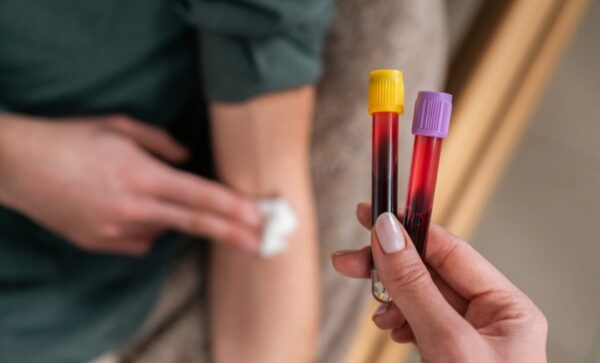Lifestyle
9 health checkups men need to do often before age 50

It is a popular notion that women are 100 per cent more likely to visit a doctor for medical examination and health screening than men.
This suggests that women are less likely to succumb to one of the top 10 fatal diseases.
As a man, below are preventive health visits you should spend some of your time on.
They are associated with healthy men and can buy you more time in life, according to Leslie Schlachter, the director of the Mount Sinai Men’s Health Program.
Checkups for each year
1. Blood sugar
Keeping glucose levels in check is imperative to reduce risk of cardiac diseases. In the extreme, diabetes wears out nerves resulting into erectile dysfunction and kidney damage. Catching diabetes or signs of it early greatly increases your chances of going into remission or controlling it.
“Many men with the beginnings of diabetes and/or a diagnosis of diabetes can be managed appropriately with diet, exercise and oral treatment,” says Schlachter.
2. Skin
Family history of cancer and heat exposure increase the risk of skin cancer. In 2010, the Centre for Disease Control reported that although melanin means less chance of getting skin cancer, 13% of black women and 9% of black men get at least one sunburn. Skin cancer can happen at any age.
Moles and birthmarks can signal the onset of symptoms and an expert can easily find out any concerns.
3. Prostate-Specific Antigen (PSA)
Statistics say that one in seven males develops prostate cancer. The PSA test involves blood level testing and is usually done along with Digital Rectal Exams (DREs) to detect this type of cancer. It is advisable to start checking as early as age 40 in cases where family history of the disease is unknown.
Checkups for every three years
4. Colonoscopy
A colonoscopy test is done to rule out colon cancer and beyond the age of 50, it is a must because the risk increases with age. Risk factors also include a history of bowel inflammation and a diet high in animal fat.
Checkups for every four years
5. Blood pressure and cholesterol
If left unchecked, high blood pressure is the leading cause of strokes in men. High cholesterol does the same plus inducing heart attacks. Blood pressure tests include thorough examination and blood test, and are easily done at local pharmacies. From 20 years of age and above, a cholesterol check is recommended every three to five years.
Checkups for every chance you get
6. Echocardiogram
Simple testing of cholesterol and monitoring blood pressure, plus weight management, are enough to catch cardiac risks.
However, in the event of a family history of heart disease, an echocardiogram (heart stress test) can catch subtle but significant heart damage. If you are on treatment for elevated cholesterol and blood pressure, it is also recommended.
7. Liver enzyme
This test is done as part of the blood work to access liver damage from unhealthy lifestyles like alcoholism, and drug use, among others. For men, these enzymes can run amok due to toxicities, inflammation, and obesity, among other risk factors.
8. TSH
Thyroid -Stimulating Hormone test is done to establish balance in thyroid release in the body. Thyroid helps the body regulate metabolism. An upset thyroid release (little or too much) leads to weight gain, fatigue, lethargy and exhaustion. Unfortunately, according to Schlachter, men consider these symptoms as normal experiences.
9. Lung screening
Lung cancer is considered the most preventable of cancers. It is found in people who smoke 90% of the time. The 10% comprises people who are genetically at risk, passive smokers and those exposed to corrosive chemicals.
However, since its scanning is high in radiation, a chest scan is not recommended. This cancer is usually caught incidentally during scans for other reasons.
Nevertheless, in between these screenings and exams, adopt a healthy lifestyle: exercise (cardiovascular and weight training), a balanced diet (low in fats, processed food and additives). Hydrate, ditch smoking, limit alcohol and rest.










